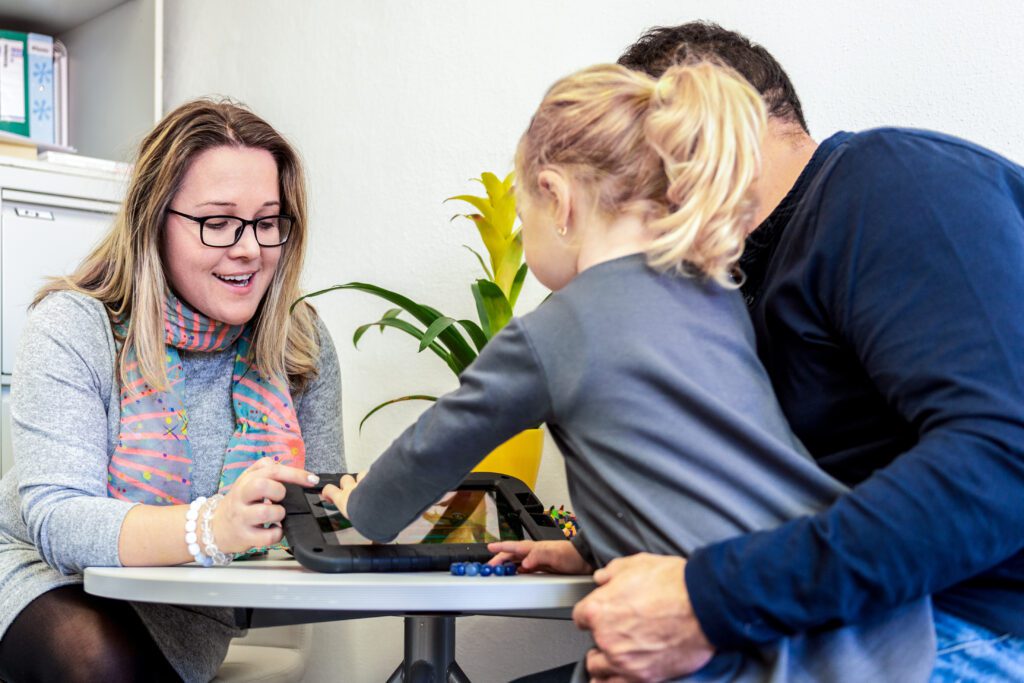The 5 C’s of ADHD parenting was created by Dr Sharon Saline to support families of neurodivergent kiddos. The philosophy of these tools are to reduce the stress and improve communication with your ADHD child or even partner.
As a therapist who works with kiddos, many in therapy due to the challenges of ADHD, I use these concepts regularly to build relationship and meet the needs of neurodivergent kiddos.
The 5 C’s are Self-control, Compassion, Collaboration, Consistency and Celebration. These elements are ageless and can change relationship dynamics with both younger kids and teens.
- Parenting a child with ADHD of any age requires ownership of the frustration and emotions you may be feeling. “Self-control” refers to building the habit of recognizing your emotional buttons and committing yourself to taking time and space to calm those before continuing with your child. Many times the unspoken thought driving emotion can be a deep belief that if they just tried harder they would be different. Accepting our own frustration allows us to step away and find perspective. It is not about changing them, it is about getting into a headspace to communicate and problem-solve with them.
- Parents and teachers often stop believing that individuals with ADHD can be trusted or successful. “Compassion” is an attitude of trust, believing that your child or teen needs and deserves your understanding, kindness and cheerleading.
In therapy, my greatest work is helping kids and adults recover from the loss of trust in themselves and the negative self-image they have after years of feeling like a frustrationto those in their life. Learning to have compassion for your child early on will help them build the resilience to keep trying as life becomes more complex and challenging.
- Dr Saline describes “Collaboration” as the effort to hear other viewpoints and solutions. Input from teachers, counselors and even directly from your child is so valuable. In our effort to find solutions we tend to bring outside solutions and interpretations to the “problem”. Collaboration means embracing the notion that your child may already be trying to solve their challenges in a way that feels intuitive. Meeting them in their current efforts may be more powerful than trying to change the way they do things.
- Learning to look at the overall trend of growth and keep an open mind about progress is part of “Consistency”.This means some flexibility and effort from all parties. When the adults follow through on their end, that supports the habit of effort and growth from your child. Looking at less than perfect attempts as “failure” shuts down hope and effort. Think of this as a marathon rather than a sprint.
- Celebrating success, no matter how small is so important for children with ADHD! Holding back praise because they “should” already know how to do certain things or failing to recognize the little victories creates more inertia. When simple, clear and sincere recognition is given in a timely manner (think short-term memory!) they learn early to recognize success and their path to achieving it.
If you can imagine, implementing these things would take time and repetition. You would have to be reminded and re-center yourself. True learning often means re-writing our own patterns and habits. Recognizing how difficult that can be for any of us also helps build empathy for what we are asking of a child navigating the world though ADHD defaults.
How can we embody the 5C’s? We all start by being open that we have something to learn or something we might do differently. Commit to being observant of yourself and your responses. Start by improving and practicing the ones that you are better at, build success for yourself. Meanwhile, learn as much as you can about why the other is hard. What beliefs are you holding onto that stop you? What is the worst thing that could happen if you tried to do something differently? And then give it a shot. Don’t expect overnight change. Don’t expect to be perfect. Tune in and ask your child or partner what they think of your approach or the changes you are making.
If this feels difficult, congratulations—you are now a more empathetic parent and partner for your ADHD family. Modeling openness to being wrong, compassion and effort to collaborate are powerful agents for change. You may be surprised how trying these principles has secondary gain even when you feel little has really “changed” in the situation.
What is also great about collaboration, is it brings us into contact with the strengths of a person. We are reminded how we love their humor, honesty or even their energy. Rather than battling against the way your child approaches the world, you are beside them sharing the unique view they have been given. The 5Cs can help you feel less like an enforcer and recover the enjoyable (even if they are challenging) parts of parenting and partnership.
If you are still struggling to get started, you may work with a counselor or parent coach to find support and guidance. Your child’s counselor or even your own might be a great sounding board for how these values could support your own confidence and calm in your relationships.
Lastly, we can all work to advocate for individuals with ADHD when we share how we’ve learned to support and navigate life with them. Breaking down the stigma and assumptions about living with neurodiversity helps us all have hope and openness to learning new ways of being. It can normalize the challenges and also remind us that none of us are failing, we are learning.
For more resources, visit www.chadd.org







